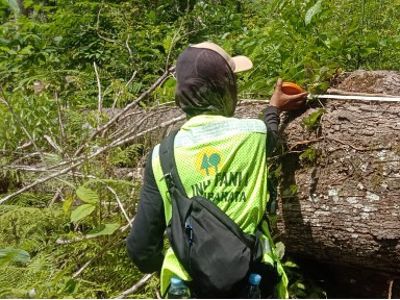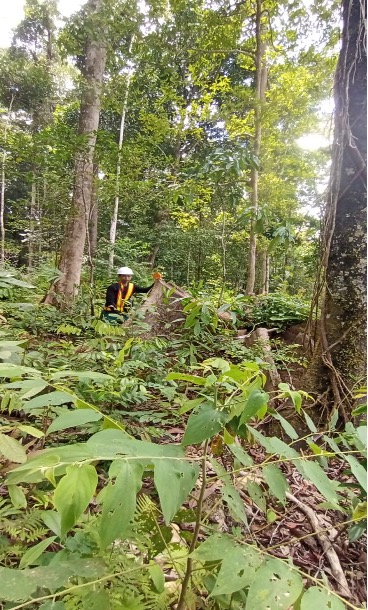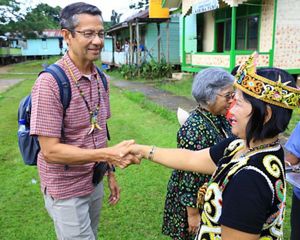RIL-C Monitoring as Provision for KPH throughout East Kalimantan
Oleh Retno Dianing Sari, Content & Publication Specialist
The Forestry Service (Dishut) of East Kalimantan Province (Kaltim), in collaboration with Yayasan Konservasi Alam Nusantara (YKAN), held training on low-emission impact harvesting (Reduced Impact Logging-Carbon/RIL-C) in Berau Regency. The movement was filled with an introduction to theory followed by field practice at PT Inhutani I UMH Meraang. There were 29 participants representing the Regional Technical Implementation Unit, Production Forest Management Unit (KPH), Sustainable Forest Management Unit, and Community Forest Park (Tahura).
Read: Lessons Learned from the Wehea-Kelay Collaborative Management, East Kalimantan
RIL-C is a timber harvesting practice implemented through careful planning and control to minimize environmental impacts on forest stands and soil. RIL-C is a vital strategy to reduce emissions from the forestry sector. YKAN's research results estimate the effect of reducing emissions from RIL-C on 200 forestry concessions in the East Kalimantan and North Kalimantan regions that are still active using a database from the journal Global Change Biology (2014). If each concession has an Annual Work Plan of around ±1,500 hectares/year, approximately 300 thousand hectares of forest will be ready to be harvested for wood.
This research's results encouraged YKAN and The Nature Conservancy to develop RIL-C practices for Forest Utilization Business Permit (PBPH) holders and monitored by KPHs throughout East Kalimantan. In 2023, it will be the start of capacity building for KPH staff in monitoring the implementation of RIL-C in their work areas. The training, held on 12-22 June 2023, is the third in a training series for 20 KPHs and 1 Tahura throughout East Kalimantan.
From the results of this training, it is hoped that participants will be able to master measuring carbon emissions from road construction activities (Haul), measuring carbon emissions from skidding movements (SKID), measuring carbon emissions from logging, and producing reports on RIL-C monitoring results. Later, the contribution of emission measurements from KPH staff will help achieve emission reduction data for the forestry sector in East Kalimantan.







